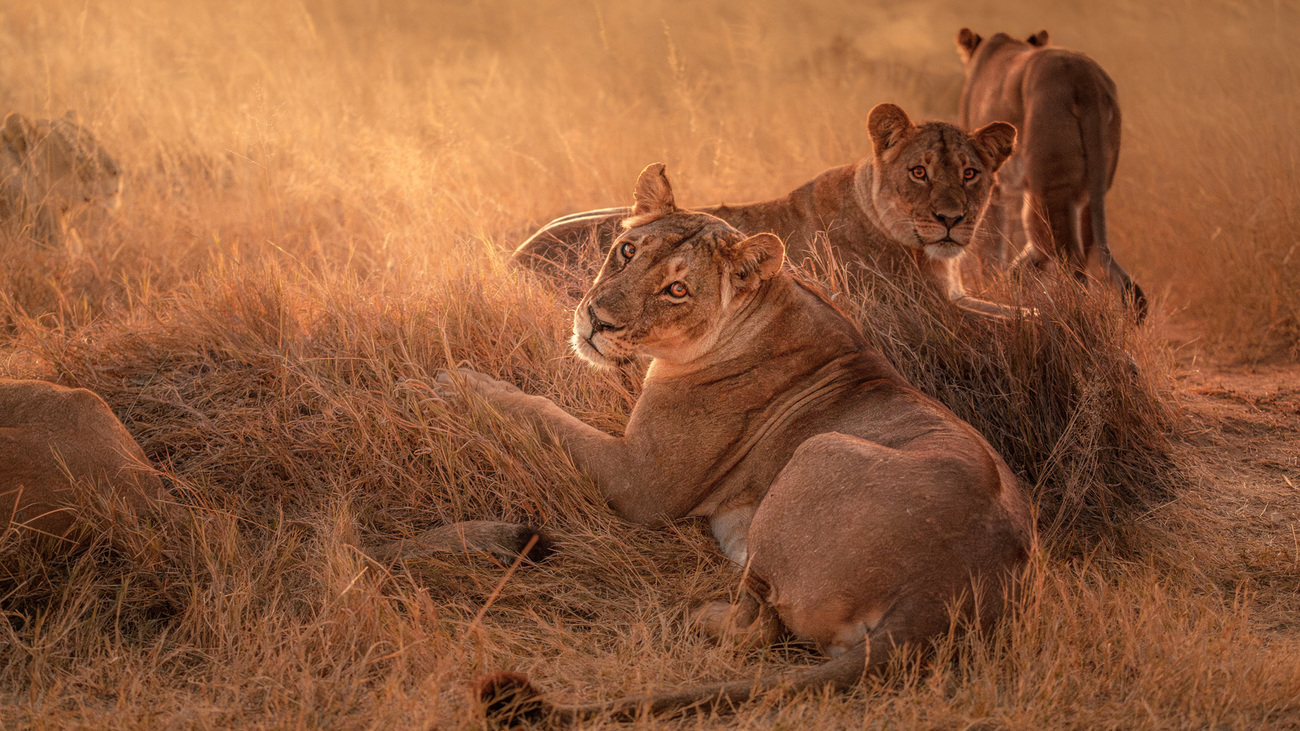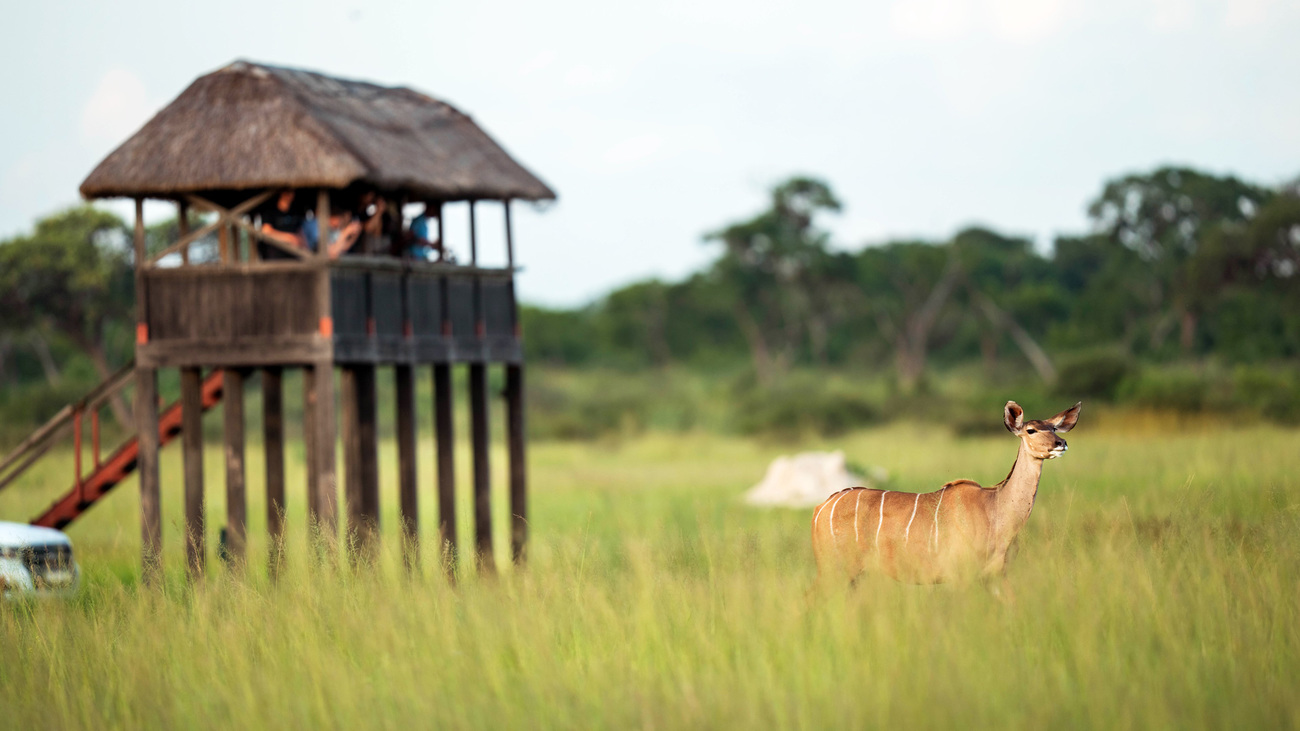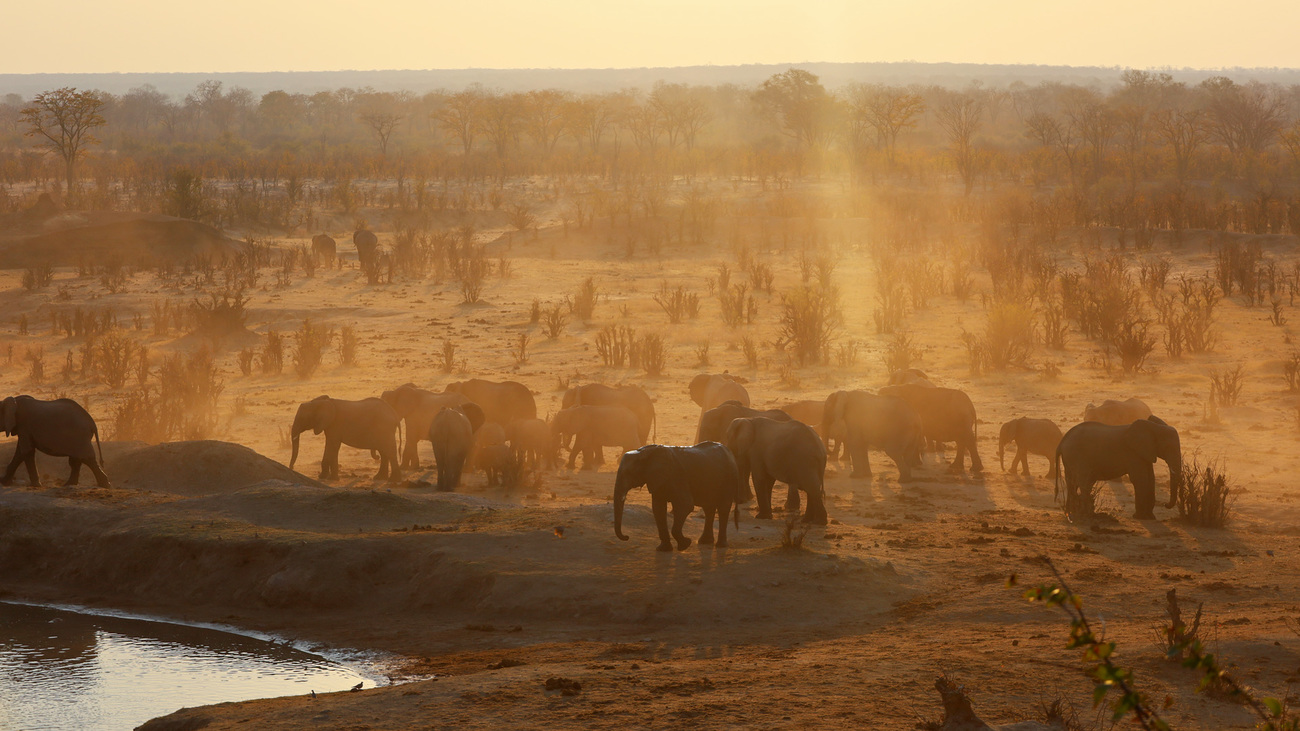Why soaring tourism is good news for Zimbabwe’s wildlife
Why soaring tourism is good news for Zimbabwe’s wildlife
When the COVID-19 pandemic shut down international travel and visits to Zimbabwe’s iconic Hwange National Park plummeted, IFAW had a grave concern: Would fewer people moving through the park make it easier for poachers to escape undetected? And, without the income that tourism brings local communities, would poaching seem more appealing?

Hwange—home to more than 45,000 elephants, 150 other mammal species, and 400 bird species—is a crucial area for wildlife and a key anchor to the Kavango-Zambezi Trans-Frontier Conservation Area. That’s why it’s a vital part of IFAW’s Room to Roam initiative, which secures connected spaces and safe passage for elephants and other wildlife while fostering harmonious coexistence with people.
In late 2019, IFAW signed a memorandum of understanding with Zimbabwe Parks and Wildlife Management Authority (ZimParks) to facilitate financial support and technical expertise in managing these protected areas. Improving tourist camps and infrastructure, such as roads, was always one of the main goals because tourism helps the park and local communities earn an income.
But, just a few months later, the industry came to a halt. IFAW and ZimParks immediately refocused their efforts on preventing poachers from seizing the opportunity to profit from animals’ pain. They significantly increased ranger patrols and improved ranger facilities. The Makona ranger base has now been transformed and not a single elephant poaching has been recorded in the IFAW-supported areas since 2021.
Tourists return to Hwange
Having dropped to as low as 10,000 visitors a year during the pandemic (down from more than 40,000 visitors each year prior to the pandemic), entries into the national park are finally back on an upward trajectory. In 2022, more than 30,000 entries were recorded.
International tourists, eager to reconnect with Zimbabwe’s largest wildlife reserve and experience an African safari, are returning to the iconic park, bringing with them much-needed funding that will help rangers continue to protect wildlife.
Loveness Kudiwa, ZimParks Tourism Manager based at Hwange Main Camp, says the post-COVID resurgence has also seen a new trend—the emergence of a more conscious traveller and a preference for camping and wild spaces.
‘Travellers are keen to avoid crowded spaces and seek exclusive safari experiences. This is a welcome development for a destination like Hwange, which offers an authentic, life-enriching safari experience,’ she said.

Long-term benefits from tourism
Tourism facilities in and around the park, such as sanitation and camping infrastructure, have undergone much-needed renovation and upgrading.
Enhancing the park’s appeal, IFAW’s partnership with ZimParks ensures visitors know that the park’s wildlife and communities are protected and receive mutual benefit from living alongside each other. The partnership has already rehabilitated several community services, including the Dete Old Age Home, boreholes providing access to potable water, and community gardens.
Phillip Kuvawoga, IFAW’s Landscape Conservation director, said that the ultimate goal is to support sustainable landscapes where human communities and wild animals can thrive together.
‘We must rebuild the tourism sector as a key pillar for conserving natural and cultural heritage,’ he stated.

What Hwange offers tourists
James Kuwanda, a Hwange-based tourism executive, attributed the resurgence to impressive conservation efforts, new tourism investment, and the recent introduction of domestic flight services to Hwange National Park.
‘There is increased publicity about Hwange National Park, and we have seen many developments and a surge in tourism investments. Connectivity has also improved.’
Mandabvu, situated in the northern part of the park, teems with animals and provides the most memorable safari experiences imaginable. The Mandabvu dam has, in recent years, been a magnet for elephants, impalas, lions, zebras, and kudus.
On a recent visit, John Stergianos, a safari lover relaxing at Mandabvu campsite, said, ‘The animals look calm and happy. It is brilliant. We are planning another trip for next year to bring some friends.’
Related content
Our work can’t get done without you. Please give what you can to help animals thrive.